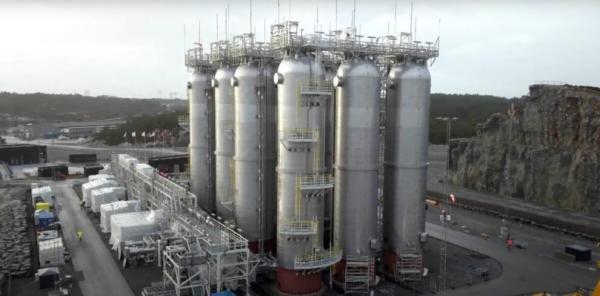
The world’s first commercial carbon storage service has successfully injected CO2 into the North Sea seabed, the Northern Lights consortium announced on Monday, August 25.
The project, run by Equinor, Shell and TotalEnergies, is designed to capture CO2 emissions from smokestacks across Europe, transport them, and store them permanently beneath the seabed to prevent their release into the atmosphere.
“We now injected and stored the very first CO2 safely in the reservoir,” Northern Lights managing director Tim Heijn said in a statement, confirming that the consortium’s ships, facilities and wells are now fully operational.
Captured CO2 is liquified and shipped to the Oygarden terminal near Bergen on Norway’s west coast, where it is transferred into storage tanks before being piped 110 kilometres offshore. The gas is then injected at a depth of 2.6 kilometres beneath the seabed.
The first CO2 shipment came from Heidelberg Materials’ cement plant in Brevik, southeastern Norway. Cement and steel production are among the industries most targeted for carbon capture and storage (CCS), which the UN Intergovernmental Panel on Climate Change and the International Energy Agency have highlighted as crucial to cutting global emissions.
Despite its potential, CCS remains expensive. Without subsidies, many industries find it cheaper to buy carbon permits on the European market than to invest in capture and storage. Northern Lights has signed just three contracts so far, with a Yara ammonia plant in the Netherlands, two of Orsted’s biofuel plants in Denmark, and Stockholm Exergi’s thermal power plant in Sweden.
Backed largely by the Norwegian government, the facility currently has an annual storage capacity of 1.5 million tonnes of CO2, which is expected to grow to five million tonnes by 2030.






















